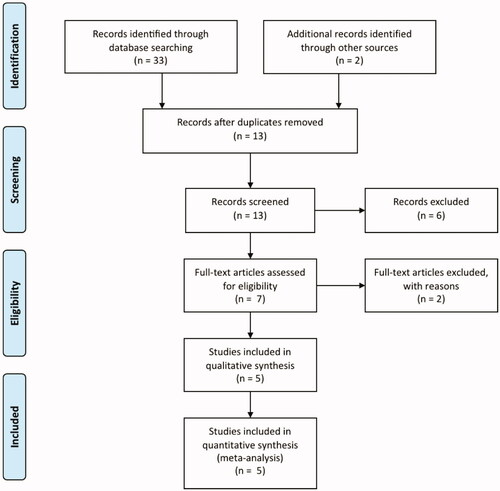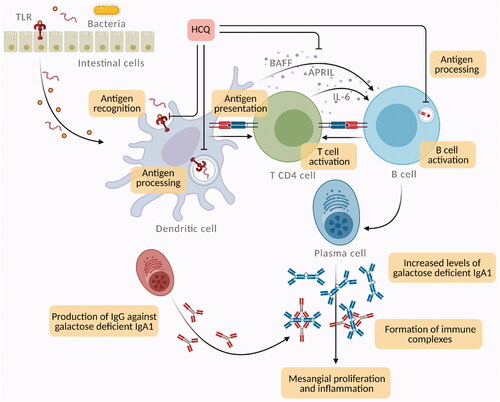Figures & data
Figure 1. Study selection process of the systematic review (PRISMA diagram, Preferred Reporting Items for Systematic Reviews and Meta-Analyses).

Table 1. Characteristics of the studies included in the systematic review.
Table 2. Adverse events of HCQ in the studies included in the systematic review.
Figure 2. Potential mechanisms for hydroxychloroquine (HCQ) action in IgA nephropathy (IgAN). HCQ can interfere with immune activation at various cellular levels by inhibiting the innate and adaptive immune systems. In IgAN, mucosal Toll like receptor-9 (TLR-9) activation induces B-cell activating factor (BAFF) overexpression in dendritic cells, stimulates the generation of proliferation-inducing ligand (APRIL) and interleukin-6 (IL-6), which act concurrently to stimulate the production of galactose deficient IgA1. HCQ interferes with TLR9 ligand binding and TLR signaling (through lysosomal inhibition), which inhibits TLR-mediated cell activation and cytokine production. Moreover, in antigen presenting cells, such as dendritic cells and B cells, HCQ inhibits antigen processing and subsequent MHC class II presentation to T cells, preventing T cell activation, differentiation and expression of co-stimulatory molecules.

Data availability statement
Data extracted from the included studies in this review are available on request from the corresponding author.
